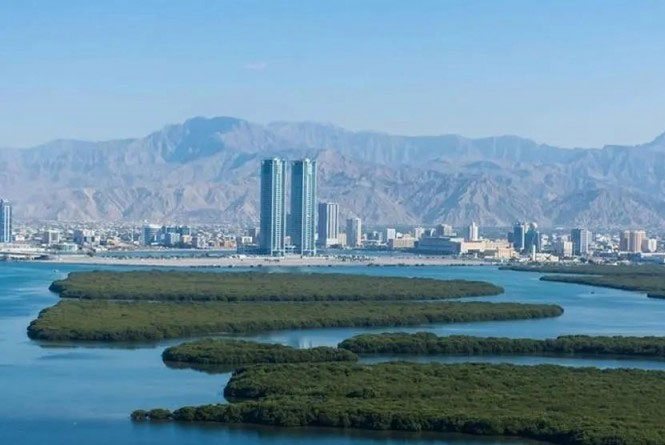In today's hyper-competitive global marketplace, businesses constantly seek efficient, cost-effective, and strategically advantageous locations to establish their international presence. Free zone company registration has emerged as a premier solution, attracting entrepreneurs, SMEs, and multinational corporations alike. These specially designated economic areas offer unparalleled benefits, streamlined processes, and a business-friendly environment designed to foster growth and facilitate international trade. Understanding the intricacies of free zone company setup is crucial for any business looking to leverage these advantages.

Here’s a comprehensive guide covering the essential aspects of free zone company registration:
Free zones, also known as free trade zones (FTZs), special economic zones (SEZs), or free economic zones (FEZs), are geographically delineated areas within a country but considered legally outside its normal customs territory. Governments establish these zones to stimulate economic development, attract foreign direct investment (FDI), boost exports, and create jobs.
Key Characteristics:
Customs Duty Exemptions: Goods imported into the free zone for storage, processing, or re-export are typically exempt from import/export duties and taxes. Duties usually apply only when goods enter the domestic market of the host country.
100% Foreign Ownership: This is arguably the most significant draw. Unlike many jurisdictions requiring a local partner or sponsor, free zones generally allow foreign investors full ownership of their company.
Full Repatriation of Capital & Profits: Businesses can freely transfer their capital and profits back to their home country without restrictions.
Streamlined Regulations: Free zones operate with their own independent regulatory authorities, offering simplified and faster administrative procedures for business setup, licensing, and compliance compared to the mainland.
Infrastructure & Support Services: They provide world-class infrastructure (offices, warehouses, logistics hubs), business support services (administrative, visa processing), and often sector-specific facilities (e.g., tech parks, media cities).
Tax Incentives: While varying significantly by jurisdiction, free zones commonly offer corporate tax exemptions for a fixed period (e.g., 15-50 years) or potentially indefinitely (subject to evolving global tax norms). Value Added Tax (VAT) exemptions or special treatments may also apply within the zone.
Understanding this core concept is fundamental before proceeding with free zone company registration.
Choosing a free zone for your business setup offers a multitude of benefits tailored to ease international operations:
100% Foreign Ownership & Control: Eliminates the need for a local partner, giving you complete autonomy over your business decisions and assets. This is a major advantage over mainland company formation in many countries.
Attractive Tax Regime: Significant corporate tax exemptions or very low rates for extended periods are the hallmark of most free zones. Potential exemptions from personal income tax, withholding tax, and customs duties drastically reduce operational costs. (Note: Global tax reforms like OECD Pillar Two may impact long-term exemptions, but benefits remain substantial).
Simplified Setup & Administration: Dedicated free zone authorities provide a one-stop-shop for all business registration, licensing, visa applications, and compliance needs, significantly reducing bureaucracy and setup time. Processes are often highly digitized.
Full Capital & Profit Repatriation: Freedom to move funds internationally without restrictions provides financial flexibility and security for foreign investors.
Strategic Geographic Location: Many free zones are located near major ports, airports, and trade routes (e.g., UAE, Singapore, Netherlands), offering excellent logistics and connectivity.
State-of-the-Art Infrastructure: Access to modern offices, warehouses, telecommunications, and specialized facilities tailored to specific industries (manufacturing, tech, media, logistics).
Enhanced Credibility & Professional Image: Operating from a reputable free zone enhances your company's international standing and trustworthiness.
Networking Opportunities: Being part of a concentrated business ecosystem fosters collaboration and networking with other international companies.
Easier Access to Visas: Free zone authorities typically facilitate the process of obtaining residence visas for investors, employees, and their families.
These advantages make free zone company registration a powerful tool for market entry and expansion.

While specific steps vary slightly between different free zone authorities, the core company formation process generally follows this structure:
Step 1: Research & Zone Selection:
Define your business activity.
Research free zones specializing in your sector (e.g., Dubai Internet City for tech, Jebel Ali Free Zone (JAFZA) for logistics/trading, RAKEZ for SMEs).
Compare costs (setup fees, license fees, office/virtual package costs, visa costs), facilities, proximity to markets/ports, and specific regulations.
Step 2: Choose Your Company Structure & Name:
Select the appropriate legal entity (most common is Free Zone Limited Liability Company - FZCO or FZE). Others include Free Zone Establishment (FZE) or branches.
Propose a unique company name adhering to the free zone's naming conventions.
Step 3: Select Your License Type:
Apply for the relevant trade license based on your activity (e.g., Trading, Service, Industrial/Manufacturing, Consulting, Freelancer). Some zones offer highly specialized licenses.
Step 4: Secure Your Physical/Virtual Office:
Choose an office package: physical office space, flexi-desk, or a virtual office package (providing a business address, mail handling, and sometimes meeting room access). This is mandatory for licensing.
Step 5: Prepare & Submit Application:
Complete the official company registration application form provided by the free zone authority.
Gather required documents (typically including passport copies of shareholders/directors, business plan, bank reference letter, CVs, NOC from current sponsor if resident in the host country, proof of address). Specifics vary.
Step 6: Application Review & Approval:
The free zone authority reviews your application and documents. This may involve due diligence checks.
Upon approval, you will receive an initial approval notification.
Step 7: Sign Legal Documents & Pay Fees:
Sign the Memorandum of Association (MOA) or similar incorporation documents.
Pay the required company registration fees, license fees, and office package fees.
Step 8: Collect Your License & Documents:
Receive your official free zone license, company registration certificate, and share certificate.
Step 9: Open a Corporate Bank Account:
Approach banks (local or international) to open a business bank account for your free zone entity. Requirements can be stringent; preparation is key.
Step 10: Visa Processing (if required):
Apply for residence visas for the investor, employees, and dependents through the free zone authority's visa services.
Engaging a reputable business setup consultant can significantly streamline this process.
Free zones are not monolithic; they cater to diverse industries and business models:
Types of Free Zones by Sector:
Multi-Purpose Zones: Offer a wide range of activities (e.g., DMCC, JAFZA, SHAMS).
Sector-Specific Zones: Focus intensely on one industry (e.g., Dubai Internet City (ICT), Dubai Media City (Media), Dubai Healthcare City, Dubai Design District).
Logistics & Trading Hubs: Located near major ports/airports (e.g., JAFZA, Khalifa Industrial Zone Abu Dhabi - KIZAD).
Financial Free Zones: Catering to banking, finance, and insurance (e.g., Dubai International Financial Centre - DIFC, Abu Dhabi Global Market - ADGM).
Industrial/Manufacturing Zones: Provide facilities for light to heavy industry (e.g., KIZAD, Hamriyah Free Zone).
Common Free Zone License Types:
Trading License: Allows import, export, storage, and distribution of goods.
Service License: Covers a wide range of professional, consulting, and service-based activities (e.g., IT services, management consultancy, marketing).
Industrial/Manufacturing License: Permits the manufacturing, processing, or assembly of goods within the zone.
E-Commerce License: Specifically tailored for online retail and digital business models.
Freelancer Permit/Visa: Allows individuals to operate as independent contractors within specific zones.
Consulting License: Often a subset of service licenses, specifically for advisory businesses.
Specialized Licenses: For specific sectors like media, education, healthcare, fintech (common in sector-specific zones).
Choosing the right zone and license type is critical for legal operation and maximizing benefits.
Successfully completing your free zone company registration is just the beginning. Maintaining compliance is essential:
Key Compliance Requirements:
Annual License Renewal: Your free zone license must be renewed annually, accompanied by payment of renewal fees.
Office Space Renewal: Maintaining your physical or virtual office package is mandatory for license validity.
Financial Reporting: While often simplified compared to mainland, most free zones require submission of annual financial statements or declarations. Audits may be required depending on the entity type and zone rules.
Record Keeping: Maintaining proper company records (financial, statutory) is mandatory.
Visa Regulations: Compliance with employment and visa sponsorship rules for employees.
Adherence to Activity: Conducting business strictly within the scope of your licensed activities.
Understanding Costs (Beyond Initial Setup):
Annual License Renewal Fees: A significant recurring cost.
Office/Virtual Package Renewal Fees.
Employee Visa Costs & Renewals.
Government Fees & Deposits (if applicable).
Potential Audit Fees.
Administrative Fees (e.g., for document attestation, certificate copies).
Important Considerations:
Market Access Limitations: Free zone companies are generally not allowed to conduct business directly within the domestic market of the host country without additional arrangements (e.g., using a local distributor, establishing a mainland entity). Their primary focus is international/offshore trade and services.
Evolving Tax Landscape: Be aware of global tax reforms (like OECD BEPS initiatives and Pillar Two global minimum tax) that may impact the long-term tax benefits offered by free zones. Research the specific jurisdiction's response to these changes.
Banking Challenges: Opening a business bank account can sometimes be challenging due to international compliance requirements; prepare robust documentation.
Choosing the Right Partner: Working with an experienced business setup consultant or corporate service provider can save time, ensure compliance, and avoid costly mistakes.
Understanding these ongoing obligations and costs is vital for sustainable operations post-free zone company registration.
Free zone company registration presents a compelling proposition for businesses focused on international trade, service provision to clients outside the host country, regional headquarters, or leveraging a strategic location for global operations. The benefits of 100% ownership, tax efficiency, streamlined setup, and world-class infrastructure are undeniable.
However, it's not a universal solution. Businesses primarily targeting the domestic market of the host country will find the free zone model restrictive due to market access limitations. The choice between a free zone and mainland company formation depends critically on your target market, business activity, and long-term strategy.
Conduct thorough research on specific free zones, understand all associated costs (initial and recurring), and carefully assess your business model against the zone's regulations. Consulting with professionals specializing in free zone company setup in your chosen jurisdiction is highly recommended to navigate the process efficiently, ensure compliance, and maximize the significant advantages these dynamic economic hubs offer. For the right business, registering in a free zone can be the catalyst for unparalleled global growth and success.
Remember: The landscape of free zones and international regulations is dynamic. Always verify the latest requirements and incentives directly with the relevant free zone authority or a qualified advisor before making your decision.










Zhuoxin Consulting relies on its Chinese service network and Dubai executive team to provide professional one-stop business services without communication barriers for Chinese companies to enter the Middle East market. Its business covers company establishment and maintenance, accounting and taxation, bank account opening, PRO services and business services.
Zhuoxin Consulting has high-quality business resources and maintains close cooperation with many free zones, bankers and tax departments in the UAE to escort your expansion in the Middle East market.
 Add WeChat
Add WeChat